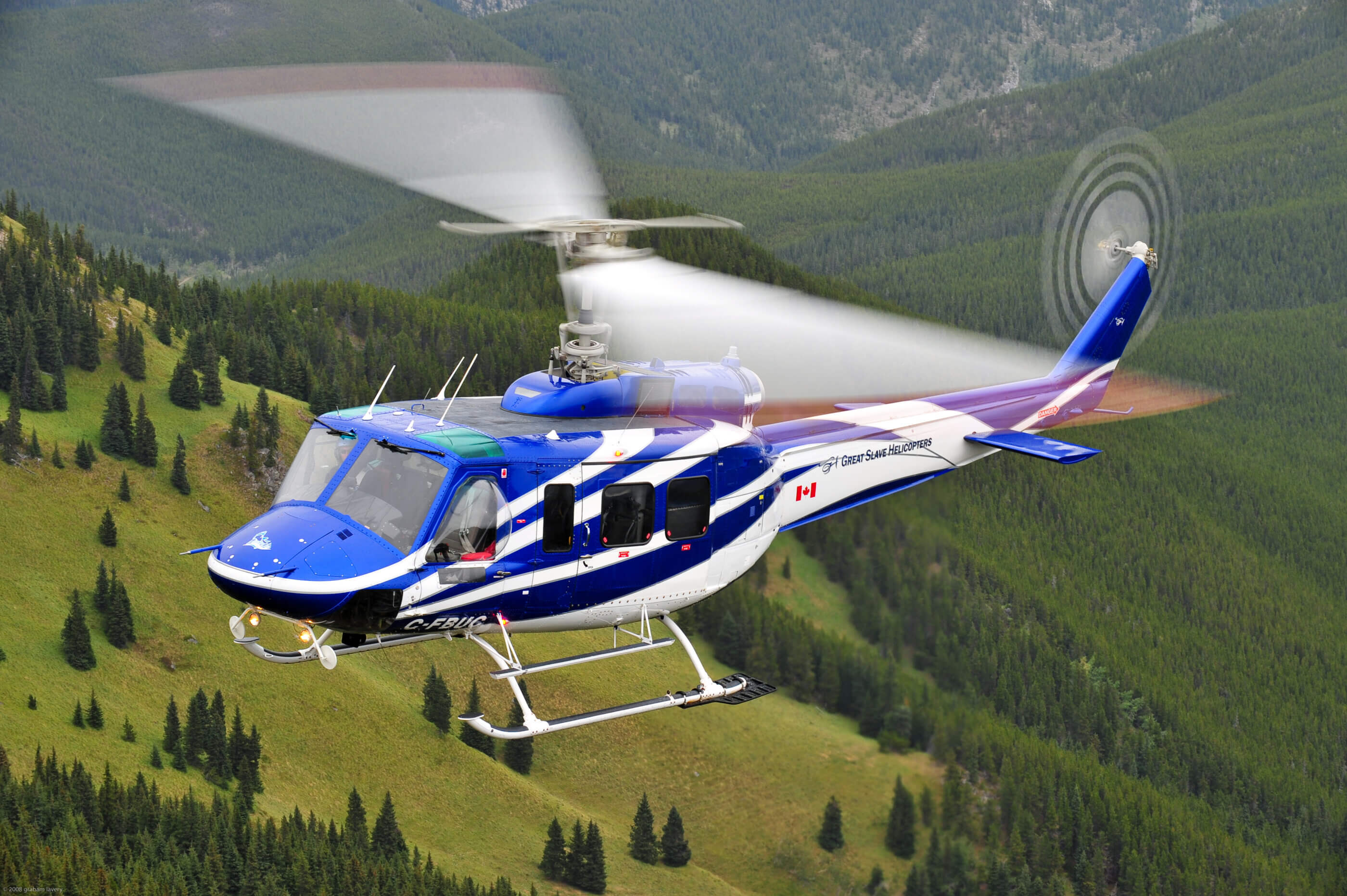Operators in Canada and the United States temporarily grounded a large portion of the Bell medium firefighting helicopter fleet following a crash that claimed the life of a Bell 212 pilot in the Northwest Territories, Vertical has confirmed.
The U.S. Forest Service (USFS) initially stood down 31 “similar model helicopters,” but has since cleared 19 of those aircraft to return to work, said John Winn, national press officer with the USFS.
“The lifting of the stand down of the remaining aircraft will be based off of factual information received from the accident investigation and communicated to industry as soon as possible,” said Winn in an email.
“The agency will continuously evaluate the need bring on additional fleet capacity, on an as-needed basis, as the investigation continues.”
The temporary grounding was voluntary for Canadian operators, and covered Bell 204, 205, 212 and 222 aircraft, said Trevor Mitchell, president and CEO of the Helicopter Association of Canada (HAC). Some Canadian operators have also resumed flying.
“I think operators and clients and stakeholders are cautiously moving forward,” said Mitchell. “It is a very small, tight-knit industry. It does impact all of us in some way, shape, or form.”
The fatal incident at Fort Good Hope airport, in a remote community about 500 miles (800 kilometres) northwest of Yellowknife, claimed the life of pilot Tom Frith, the sole occupant of the aircraft. Frith was flying on behalf of Great Slave Helicopters.
Canada’s Transportation Safety Board (TSB) told HAC a tension torsion (TT) strap that retains the blade to the rotor head failed, and the blade departed the aircraft in flight, Mitchell said. The TT strap was manufactured by Airwolf Aerospace, he said.
The TSB is still investigating the incident and Mitchell noted it’s too early to definitively understand the circumstances that led to the failure.
“I think we’re too early in the process yet, and there has to be a lot of work done by the Transportation Safety Board, involving not only their experts but also the experts at the manufacturer of the parts,” said Mitchell. “Ultimately, this will involve the FAA [U.S. Federal Aviation Administration], because it was manufactured by a U.S. company.
“I think there’s got to be a lot of work before we can say definitively that we understand the mechanism of failure. There could be many, many reasons for fault of this part.”
The incident prompted an outpouring of condolences and tributes from the helicopter community. Frith was an experienced pilot originally from Australia, and had been living in Yellowknife with his wife and children, according to Australian media reports.
His work also included flying helicopters for the survivalist TV show Alone, according to the Australian 7News broadcasting service.
“He was a beacon of light, beloved by all who had the privilege of knowing him,” said Great Slave Helicopters in a statement posted to social media, citing Frith’s “unwavering courage and dedication.”
“As we navigate this time of sorrow, let us hold on to the memories of Tom — his smile, laughter, the love, and the countless ways he made our lives better. His legacy will live on in his beautiful young family and the hearts of all who knew him. Our heart felt condolences to Tom’s wife, children, parents, brothers and all extended family and friends in Yellowknife and Australia.”
In Canada, the temporary grounding of Bell medium helicopters has been largely restricted to aircraft with the same brand of TT strap said to be involved in the crash, Mitchell told Vertical.
“What I’ve heard from industry is that … anybody that was running another manufacturer of that TT strap is clearing those aircraft for flight,” he said.
The Hotshot Wake Up, a Substack that covers wildfire news, fire technology and wildfire policy, first reported the USFS had placed a nationwide “tactical pause” on Bell medium helicopters used for firefighting, citing an official memo to operators.
“This is going to be a broad reaching impact,” said Mitchell. “We fully believe that as we move forward, everyone will get the help that they need, whatever that is for each individual. But these types of accidents do resonate with everybody in our industry, because it is such a small, tight-knit group.”





